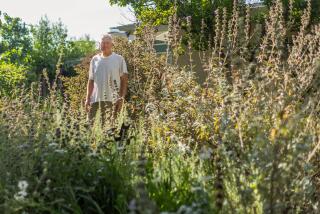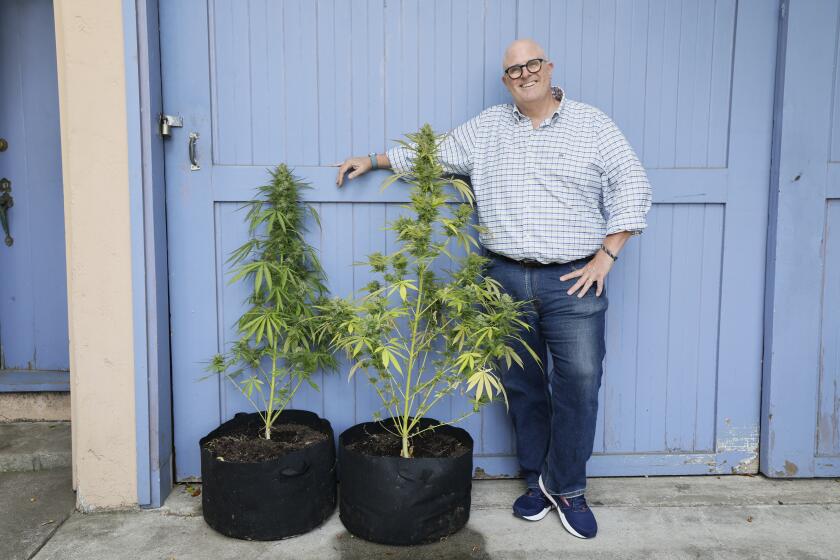How to grow your own coffee: It’s easy, sort of
Growing coffee isn’t hard. It’s the time-consuming extraction of the beans that defeats would-be backyard growers.
Every season when the coffee bushes hidden in the shade of the Wattles Farm community garden in Hollywood start to produce cherries, one of the gardeners volunteers for the process of peeling the shells, removing the fleshy pulp along with the interior parchment, and washing and air-drying the tiny beans within.
“They’re very enthusiastic in the beginning and are still enthusiastic at the end because the coffee is very good, but they swear they’ll never do it again,” said Laurel Delp, one of the gardeners at Wattles.
She has helped pick the cherries and enjoyed the excellent brew that results but admits it’s far too much work for a small number of beans (actually seeds). Eating the cherries raw is an easier reward.
“It’s delicious,” she said. “I was shocked. It’s a fruit, a sweet-tart taste. The flesh is really good.”
Tasting a coffee cherry changes your understanding coffee, said Jay Ruskey of the Good Land Organics farm in Goleta: “It’s my kid’s favorite fruit. Once you have one, it changes what you want when you drink coffee. Light roasted coffee means they don’t burn the sugar, so you can taste the cherry. The baseline of the cherry flavor helps you understand the importance of post-harvest and what they were trying to do.”
Good Land Organics has 600 mature plants representing 13 varieties in trial at a site two miles from the beach. Ruskey has also put in tens of thousands more plants that will be ready for sale as varietal seedlings in about 10 months, to large growers or backyard gardeners.
Coffee (Coffea arabica) is an evergreen and makes an attractive ornamental that can be grown in a container, although you may not get the pretty white flowers and cherries. The shiny green leaves are gorgeous, and the plant can be trimmed easily to keep it from turning into a tree. It likes good air flow, humidity and flickered light, requiring about the same attention as a philodendron.
Coffee plants grow well under avocado trees -- part of the reason Ruskey has dedicated so much land to seedlings. California avocado growers theoretically could add coffee to already cultivated land for a profitable secondary crop.
The key to industrial production is having a processing system -- machines for depulping and removing the interior parchment around the seeds. Taking the pulp off a pound of cherries by hand can take half an hour. A depulper needs about 20 seconds, Ruskey said.
For a detailed explanation of the coffee bean’s life cycle, seed to cup, Good Land Organics offers a monthly three-hour tour. The next is June 15. The cost is $40 and includes a tasting.
The Global Garden is our series on plants from around the world as reflections of L.A.’s cultures and communities. It appears here on Tuesdays and in our Global Garden archive.
For an easy way to follow the series and the rest of the L.A. scene, bookmark L.A. at Home and join us on Facebook, Twitter and Pinterest.






